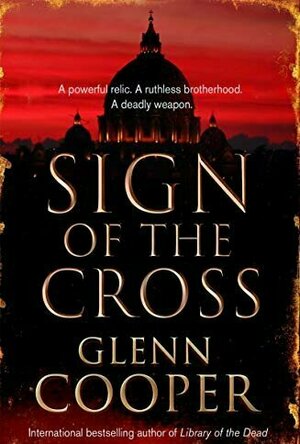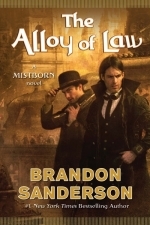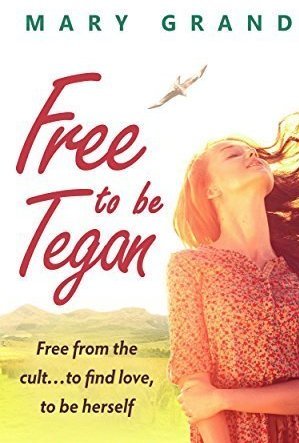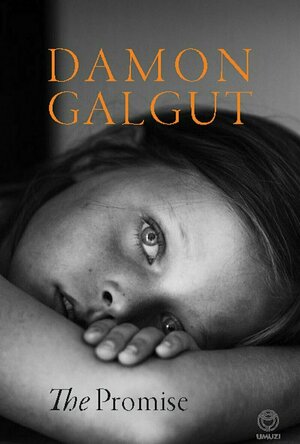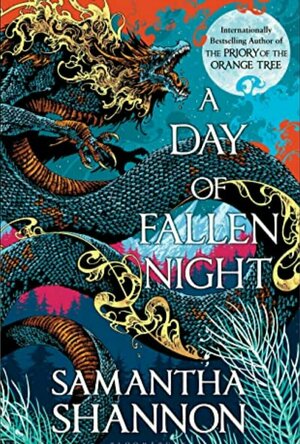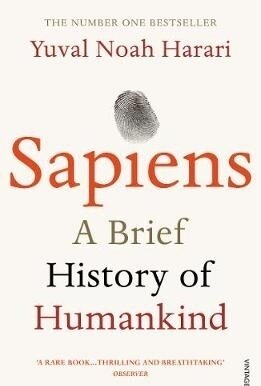Search
Search results
BookInspector (124 KP) rated Sign of the Cross (Cal Donovan, #1) in Books
Sep 24, 2020
This book is told from multiple perspectives and it has a very wide variety of characters to choose from. I really liked Cal (kind of the main character of this book), he is a very charming, intelligent and likeable character. Sometimes I used to get lost between who is who, due to a huge amount of different characters, whose names were not the easiest to pronounce. I am not very religious, but I really liked the way history and religion were combined in this novel, it was truly amusing.
This novel is very well researched, and it was visible, that the author loves history and knows how to present it to the reader in a fun manner. The narrative always keeps changing between different locations and different times. I really liked this constant change, it made the book lively and it kept me entertained. It is quite a short book, so every chapter brings something new and unexpected.
This novel has a lot of facts and information and wasn’t the easiest read, it requires quite a bit of concentration. The chapters have decent length and didn’t drag to me. The ending was interesting and rounded up the story nicely. So, to conclude, it is a fast-paced and educational novel, filled with adventure, amusing characters and always changing plot. If you enjoyed The Da Vinci Code or similar books, I think you would enjoy it as well. Give this book a try, and I hope you will like it as much as I did. 🙂
This novel is very well researched, and it was visible, that the author loves history and knows how to present it to the reader in a fun manner. The narrative always keeps changing between different locations and different times. I really liked this constant change, it made the book lively and it kept me entertained. It is quite a short book, so every chapter brings something new and unexpected.
This novel has a lot of facts and information and wasn’t the easiest read, it requires quite a bit of concentration. The chapters have decent length and didn’t drag to me. The ending was interesting and rounded up the story nicely. So, to conclude, it is a fast-paced and educational novel, filled with adventure, amusing characters and always changing plot. If you enjoyed The Da Vinci Code or similar books, I think you would enjoy it as well. Give this book a try, and I hope you will like it as much as I did. 🙂

Twisted Memories
Book
Twenty years ago Angus James woke to find himself in a sterile room. On the other side of the locked...
Post Apocalyptic Apocalypse Dystopia Dystopian Zombies
ClareR (6054 KP) rated The Promise in Books
Oct 12, 2021
The Promise is on the Booker Prize 2021 shortlist, and I can see why. I enjoyed this book immensely - I love the idea of being a fly on the wall of a white South Africans house during and after Apartheid, and this pretty much sold the book to me before I even started reading it. The fact that we only drop in to the lives of this family during times of death and the subsequent funerals was a really interesting angle to take. These were people under a great deal of stress due to the fact that someone in their close family had died - even though they weren’t a close family at all. There are four funerals, each completely different in style, religion (or not) and ways in which they died.
As time moves on, Apartheid ends, Nelson Mandela becomes President. But does life change that much for the Swarts? Do they uphold the promise made at the beginning of the book, as overheard by the youngest daughter when her mother was dying? Laws may change, but do people’s attitudes?
This is a disjointed family: there doesn’t seem to be a single close relationship between any of them. They all seem to be selfish people who resent the new South Africa, as they lose social standing, money, and are directly affected by the rise in crime.
It was a thoroughly engrossing book, and I lost myself in it every time I sat down to read. It’s a really good, character-driven novel. Now to wait and see if it wins!!
As time moves on, Apartheid ends, Nelson Mandela becomes President. But does life change that much for the Swarts? Do they uphold the promise made at the beginning of the book, as overheard by the youngest daughter when her mother was dying? Laws may change, but do people’s attitudes?
This is a disjointed family: there doesn’t seem to be a single close relationship between any of them. They all seem to be selfish people who resent the new South Africa, as they lose social standing, money, and are directly affected by the rise in crime.
It was a thoroughly engrossing book, and I lost myself in it every time I sat down to read. It’s a really good, character-driven novel. Now to wait and see if it wins!!
ClareR (6054 KP) rated A Day of Fallen Night in Books
Feb 28, 2023
Phenomenal. Breath-taking. Complex, and well worth both the wait and the work - well, it’s not really work to read this. It was all pleasure.
To say this book is wide-sweeping would be an understatement. Set 500 years before The Priory of the Orange Tree, A Day of Fallen Night encompasses a whole world, with different religions, traditions and cultures. The complexity of this book! And then there’s the fact that I didn’t for one moment feel confused. The style of writing in each Kingdom was so distinct, that I knew immediately where I was (no reading ahead and then back again to figure out where I was!).
Matriarchal societies, societies where homosexuality is accepted (and in fact is nothing extraordinary), dragons, magic, did I say dragons? Yes, OK, I did, but I cannot stress enough how much I loved the dragons.
There’s over 800 pages of action, fighting, adventure, romance, politics, love, betrayal, religion, dragons (have I mentioned the dragons?), magic, strong women, noble men. Ah, I could go on - I won’t.
If fantasy is your thing, you’ll love this. If you’ve read and enjoyed Priory, you’ll love this. I don’t think it matters which order you read the two books in, they’ve been written as standalones in the same world. And, if rumours are true, there will be more - AND I CAN’T WAIT!!!
Thanks to NetGalley and Bloomsbury for my ebook copy. And you’d better bet your life that I’ve bought a hardback copy. I mean, look at that cover! It’s glorious - beautiful!!
To say this book is wide-sweeping would be an understatement. Set 500 years before The Priory of the Orange Tree, A Day of Fallen Night encompasses a whole world, with different religions, traditions and cultures. The complexity of this book! And then there’s the fact that I didn’t for one moment feel confused. The style of writing in each Kingdom was so distinct, that I knew immediately where I was (no reading ahead and then back again to figure out where I was!).
Matriarchal societies, societies where homosexuality is accepted (and in fact is nothing extraordinary), dragons, magic, did I say dragons? Yes, OK, I did, but I cannot stress enough how much I loved the dragons.
There’s over 800 pages of action, fighting, adventure, romance, politics, love, betrayal, religion, dragons (have I mentioned the dragons?), magic, strong women, noble men. Ah, I could go on - I won’t.
If fantasy is your thing, you’ll love this. If you’ve read and enjoyed Priory, you’ll love this. I don’t think it matters which order you read the two books in, they’ve been written as standalones in the same world. And, if rumours are true, there will be more - AND I CAN’T WAIT!!!
Thanks to NetGalley and Bloomsbury for my ebook copy. And you’d better bet your life that I’ve bought a hardback copy. I mean, look at that cover! It’s glorious - beautiful!!
BookblogbyCari (345 KP) rated Sapiens: A Brief History of Humankind in Books
Aug 5, 2018
This book was chosen to be the first book read and discussed in an online non-fiction book club I recently joined – and I’m glad we did choose this one!
The book is an overview of homo-sapiens as a species, and how we have changed over the ages, and what we have done, before finally touching on where we are going. As such the book is a cross-pollination of history, sociology, and economics.
As you may expect from a book with such a broad scope, there are some sweeping statements, and rather than being a neutral dispassionate account, Harari makes his opinions very evident. However rather than being irritating, I feel this makes for a more entertaining read.
The book begins by introducing the theme of homo-sapiens in the context of the presence of the other human species that used to exist. He then goes on to describe the cognitive and agricultural revolutions. Then it’s the establishment of patriarchal social hierarchies across the world, largely based on historical conventions. Next Harari states that the purpose of religion is to unify fragile societies with superhuman legitimacy.
Harari then moves on to the scientific revolution, describing how an admission of ignorance by Europeans, along with a desire to discover and conquer new lands was key to the movement.
The conversation moves swiftly then to economics, using the fact that a bank can loan £10 for every £1 it has, to argue that our economics is based on trust in the future. Harari states that a country’s credit rating is more important than its actual resources. Harari describes capitalism and consumerism as being 2 sides of the same coin with two commandments: rich must invest, rest of us must buy. Consumerism, he says, aims to convince people that indulgence is good and frugality is self-oppression.
Harari also argues that, now, instead of relying on local communities the individual relies on the market or the state. Parental authority no longer sacred, he says, and state intervenes. And so when Harari asks if we are any happier now than when we were hunter-gatherers, he argues that our rise of wealth is offset by the disintegration of community life.
Harari also speaks of ecological degradation and our tendency to treat other species as a means to an end, for example, the farming of cow's and chickens has cut years off the lives of both, since they are killed as soon as they reach their maximum weight.
In the final chapter, Harari speculates on the future of mankind. With improvements in medical knowledge comes new ethical conundrums, he says. How will we handle the options of genetic engineering? What will the advent of artificial intelligence mean for humanity?
In my book club, we found that the book generated a lot of talking points. What would the world be like now, had the other species of humans survived? Why have so many cultures across history and the world had patriarchal hierarchies? Can societies improve over time, or is one style better than another? Can communism be considered a religion? Are human rights really just a figment of our collective imagination?
Whilst not everyone in my book club enjoyed the book equally, I would say that it’s as enlightening as it is thought provoking. By the end, it was hard to argue with the author's conclusion that homo-sapiens are like dissatisfied and irresponsible gods.
The book is an overview of homo-sapiens as a species, and how we have changed over the ages, and what we have done, before finally touching on where we are going. As such the book is a cross-pollination of history, sociology, and economics.
As you may expect from a book with such a broad scope, there are some sweeping statements, and rather than being a neutral dispassionate account, Harari makes his opinions very evident. However rather than being irritating, I feel this makes for a more entertaining read.
The book begins by introducing the theme of homo-sapiens in the context of the presence of the other human species that used to exist. He then goes on to describe the cognitive and agricultural revolutions. Then it’s the establishment of patriarchal social hierarchies across the world, largely based on historical conventions. Next Harari states that the purpose of religion is to unify fragile societies with superhuman legitimacy.
Harari then moves on to the scientific revolution, describing how an admission of ignorance by Europeans, along with a desire to discover and conquer new lands was key to the movement.
The conversation moves swiftly then to economics, using the fact that a bank can loan £10 for every £1 it has, to argue that our economics is based on trust in the future. Harari states that a country’s credit rating is more important than its actual resources. Harari describes capitalism and consumerism as being 2 sides of the same coin with two commandments: rich must invest, rest of us must buy. Consumerism, he says, aims to convince people that indulgence is good and frugality is self-oppression.
Harari also argues that, now, instead of relying on local communities the individual relies on the market or the state. Parental authority no longer sacred, he says, and state intervenes. And so when Harari asks if we are any happier now than when we were hunter-gatherers, he argues that our rise of wealth is offset by the disintegration of community life.
Harari also speaks of ecological degradation and our tendency to treat other species as a means to an end, for example, the farming of cow's and chickens has cut years off the lives of both, since they are killed as soon as they reach their maximum weight.
In the final chapter, Harari speculates on the future of mankind. With improvements in medical knowledge comes new ethical conundrums, he says. How will we handle the options of genetic engineering? What will the advent of artificial intelligence mean for humanity?
In my book club, we found that the book generated a lot of talking points. What would the world be like now, had the other species of humans survived? Why have so many cultures across history and the world had patriarchal hierarchies? Can societies improve over time, or is one style better than another? Can communism be considered a religion? Are human rights really just a figment of our collective imagination?
Whilst not everyone in my book club enjoyed the book equally, I would say that it’s as enlightening as it is thought provoking. By the end, it was hard to argue with the author's conclusion that homo-sapiens are like dissatisfied and irresponsible gods.

Schlaukopf
Education and Games
App
- Stoff für alle Jahrgangsstufen und Schultypen - eine große Auswahl an Schulfächern -...
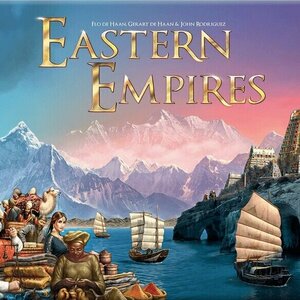
Eastern Empires
Tabletop Game
Eastern Empires is a board game for 3 to 9 players and covers the development of ancient...
Merissa (13600 KP) rated Turkish Delights in Books
Dec 17, 2018
I received this book from Totally Bound Publishing in return for a fair and honest review.
The premise of this story is that 3 men from different walks of life all come together to build a new, top of the range, hotel in Istanbul. Two of the men know each other already through work and are both attracted to each other but have never acted upon it due to mixing "business with pleasure". The third man comes along to help with the authenticity of the project with his amazing sculptures.
I can only imagine the hours upon hours of research that has been put into this book, which makes the story full of Eastern Promise and richness. The descriptions of Istanbul, the hotel in process, architecture, religion and what it means to specific families and people, it's all here. This gives the story a certain something which takes it above and beyond a 'usual' M/M or ménage story. Don't get me wrong, there is a lot of sex in this book if that is all you are interested in but personally, I feel like you'd be missing out on a whole lot more if you just skim to the sexy bits.
Incredibly well put together with a depth of knowledge and research that makes it a joy to read.
*** Minor Spoiler ***
I loved the part towards the end where Emir uncovers a sculpture he has done and it is all in sets of three. A small thing, unknown to most, that can mean so much. A wonderful touch.
Definitely recommended for all fans of M/M and Ménage and this is certainly an author for me to watch.
The premise of this story is that 3 men from different walks of life all come together to build a new, top of the range, hotel in Istanbul. Two of the men know each other already through work and are both attracted to each other but have never acted upon it due to mixing "business with pleasure". The third man comes along to help with the authenticity of the project with his amazing sculptures.
I can only imagine the hours upon hours of research that has been put into this book, which makes the story full of Eastern Promise and richness. The descriptions of Istanbul, the hotel in process, architecture, religion and what it means to specific families and people, it's all here. This gives the story a certain something which takes it above and beyond a 'usual' M/M or ménage story. Don't get me wrong, there is a lot of sex in this book if that is all you are interested in but personally, I feel like you'd be missing out on a whole lot more if you just skim to the sexy bits.
Incredibly well put together with a depth of knowledge and research that makes it a joy to read.
*** Minor Spoiler ***
I loved the part towards the end where Emir uncovers a sculpture he has done and it is all in sets of three. A small thing, unknown to most, that can mean so much. A wonderful touch.
Definitely recommended for all fans of M/M and Ménage and this is certainly an author for me to watch.
